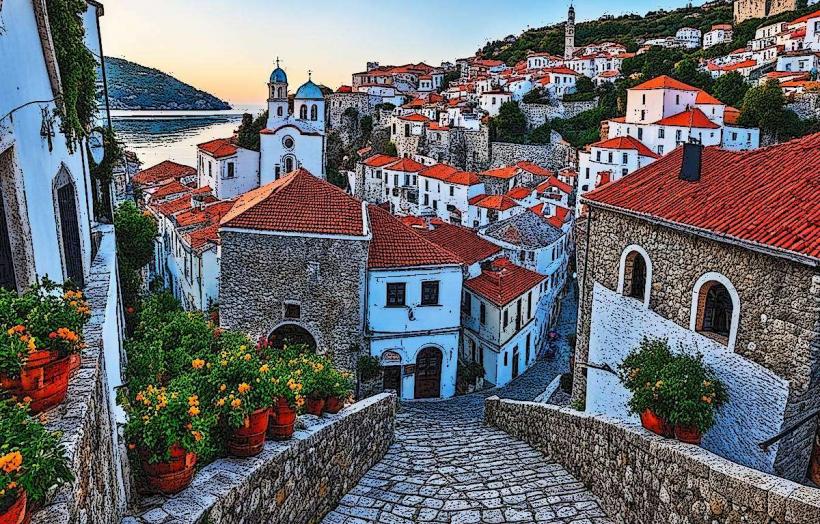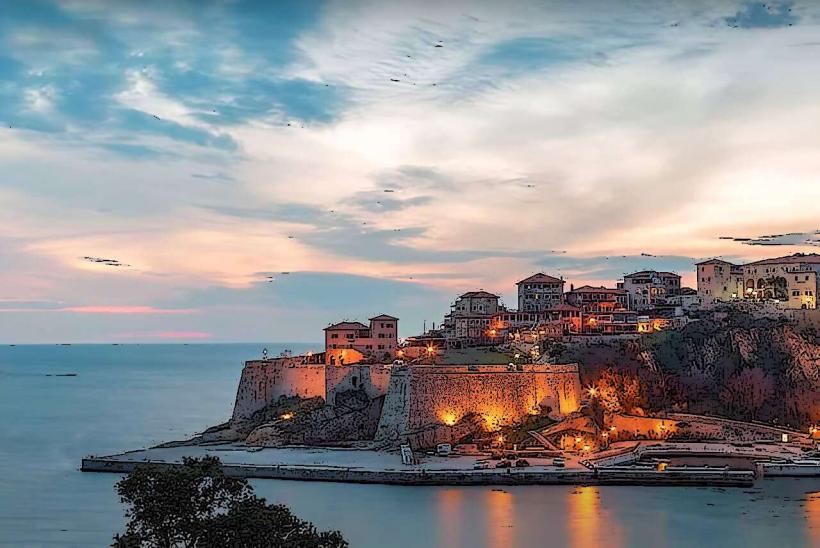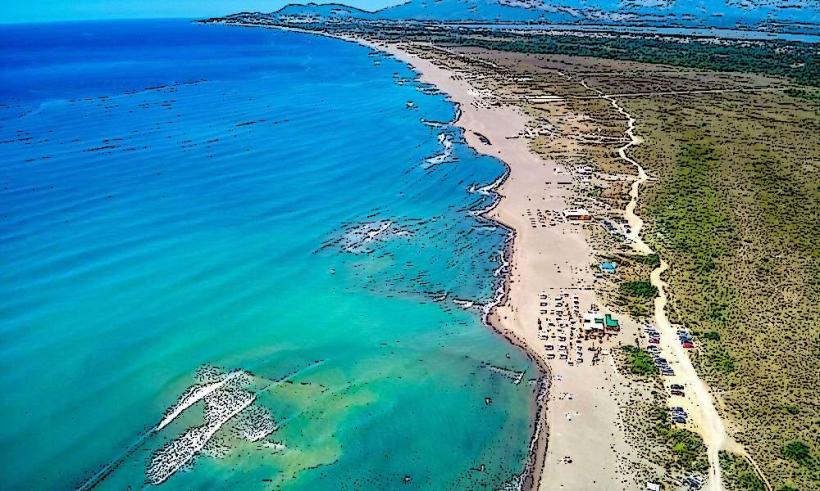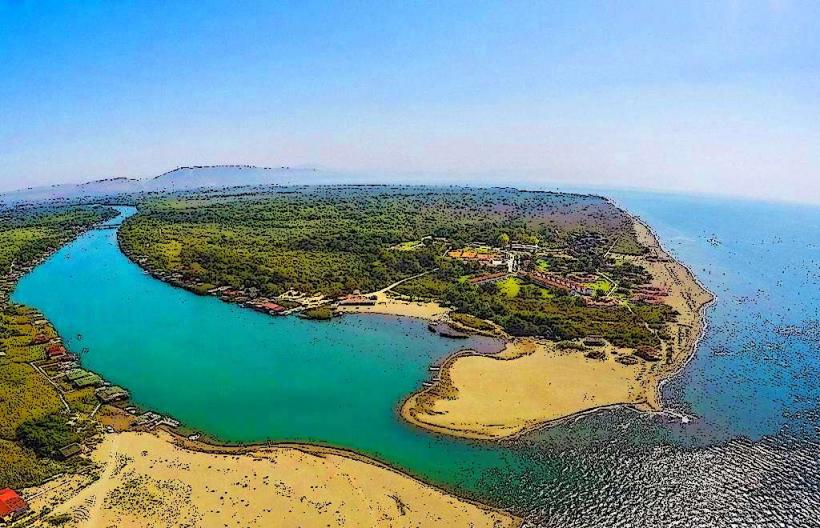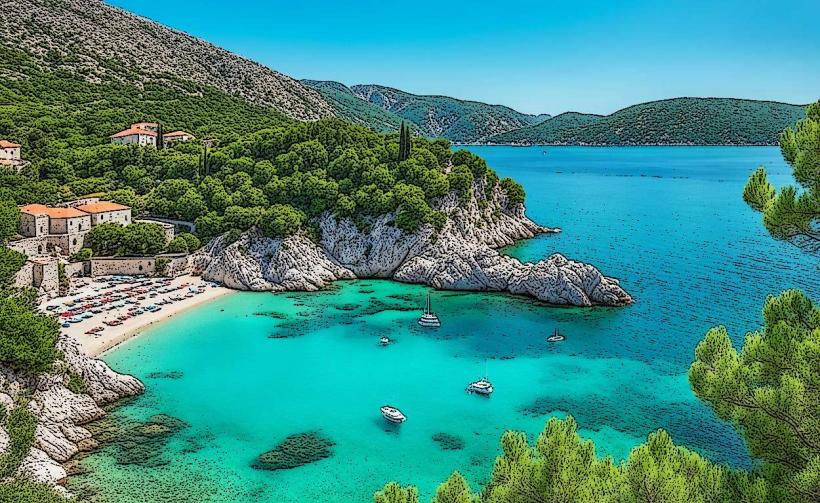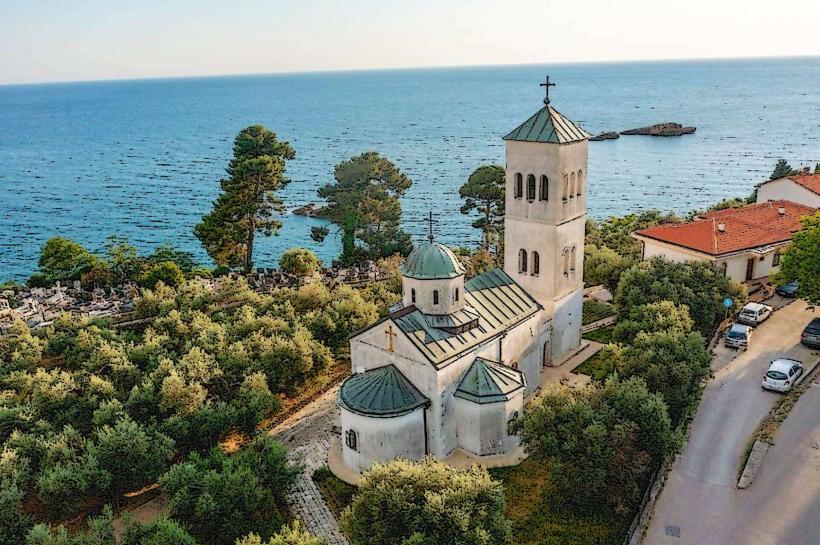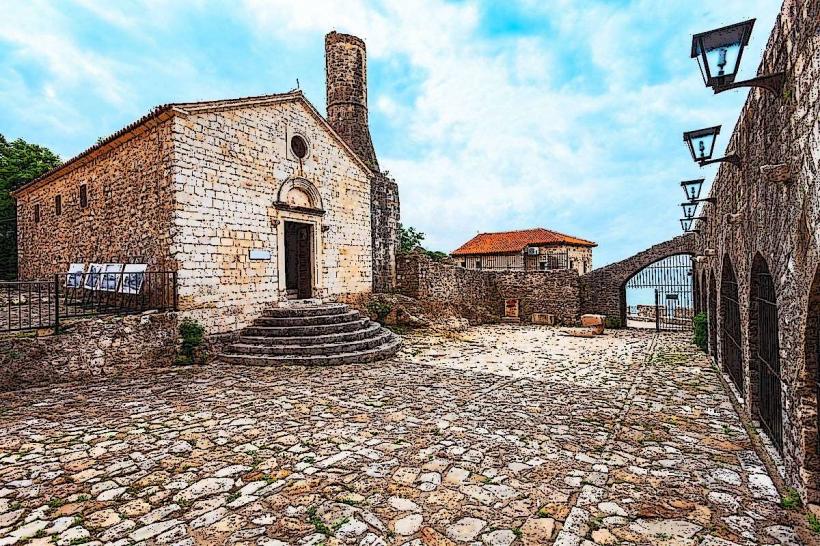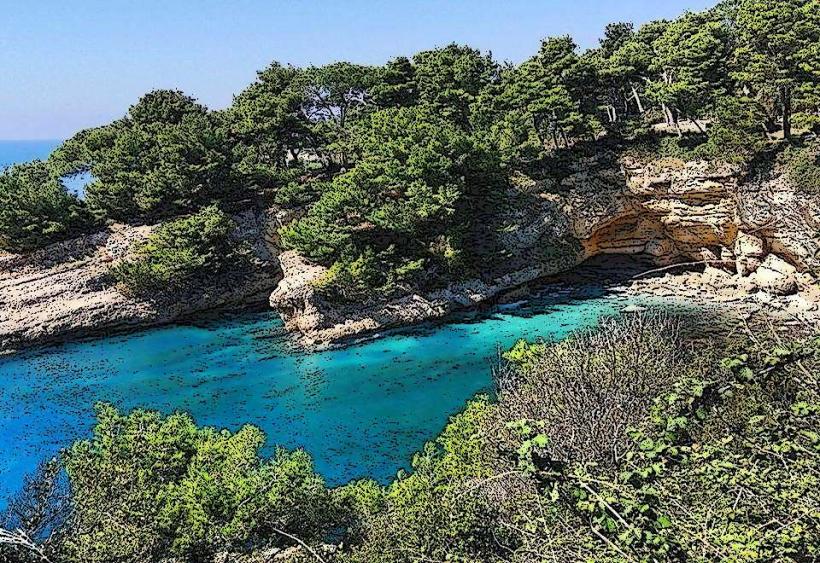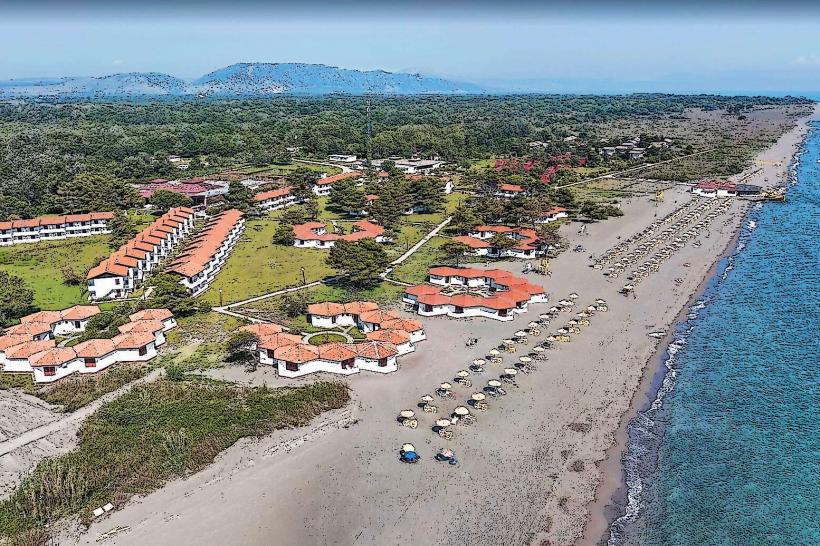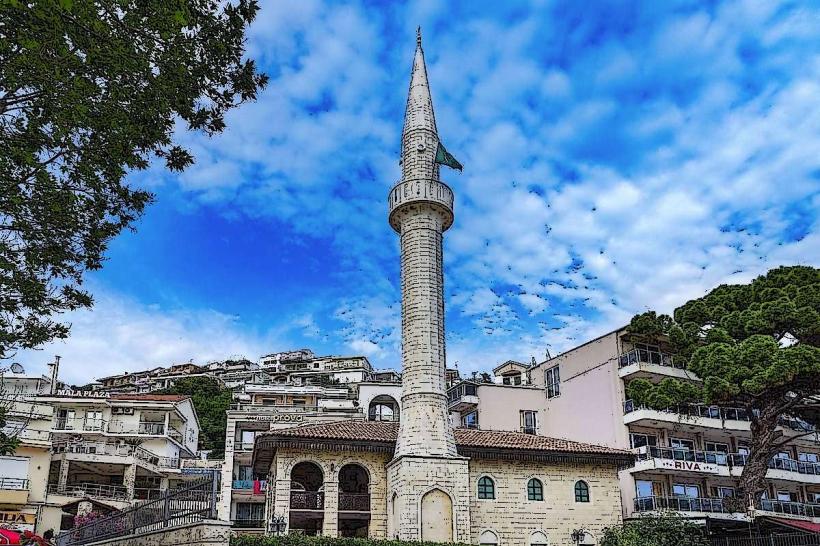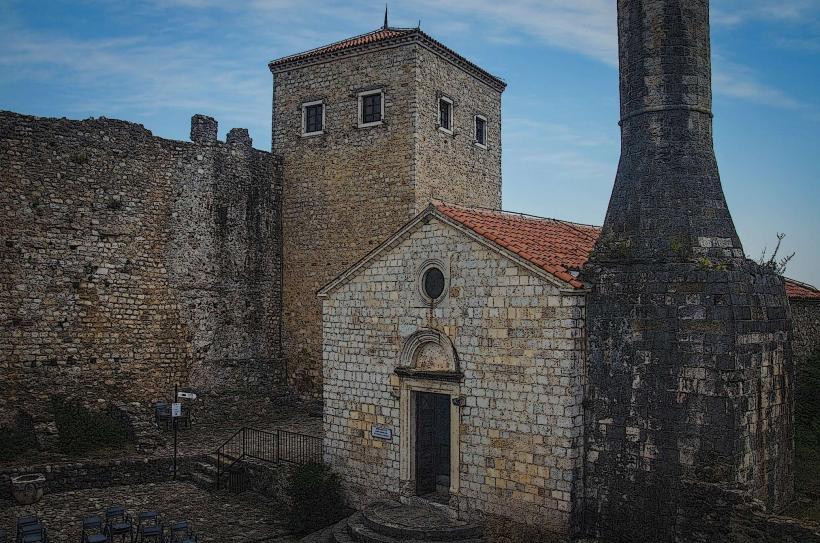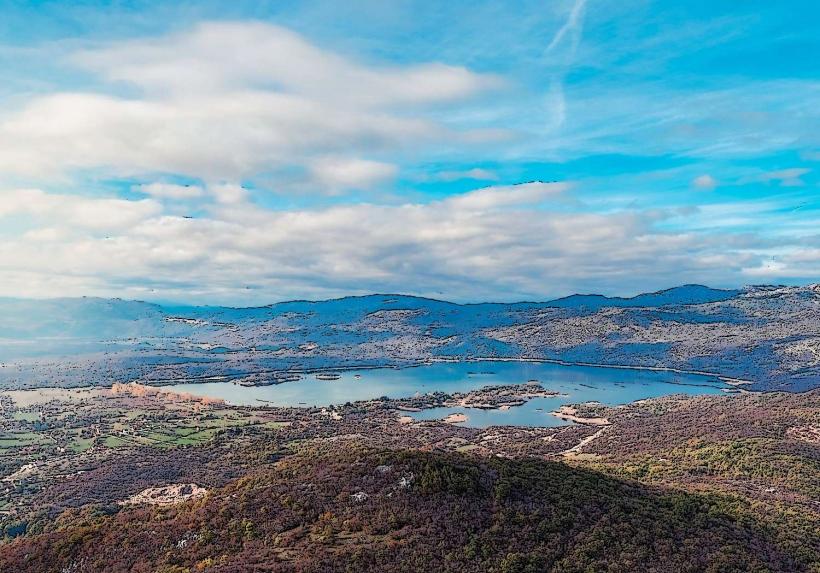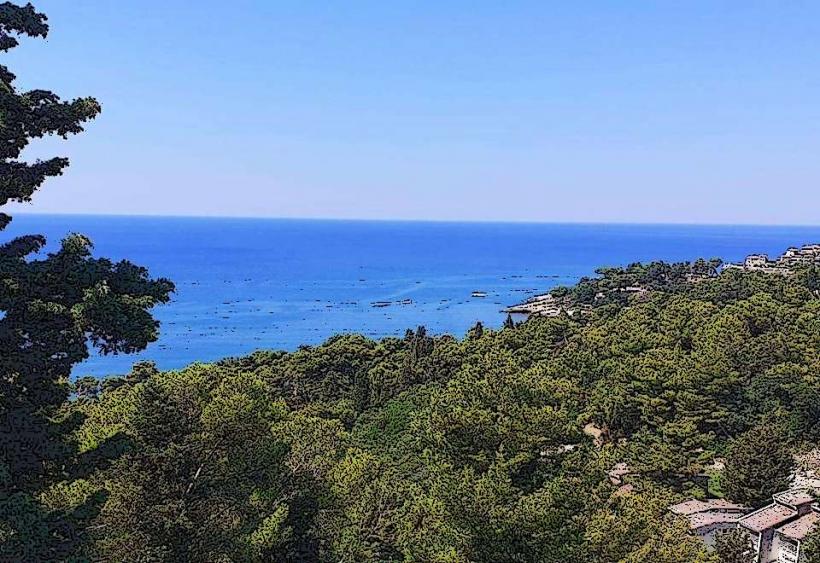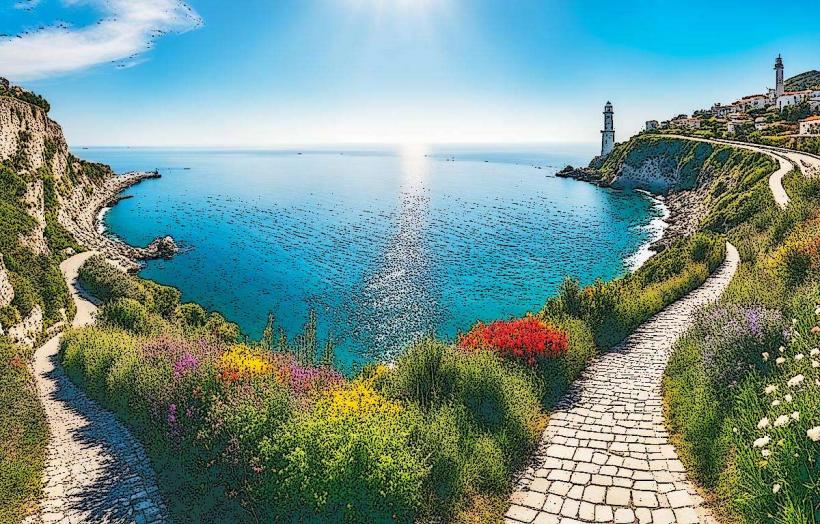Information
Landmark: River BojanaCity: Ulcinj
Country: Montenegro
Continent: Europe
River Bojana, Ulcinj, Montenegro, Europe
River Bojana is one of Montenegro’s most significant and scenic rivers, flowing through the southern part of the country and eventually forming part of the border between Montenegro and Albania. The river is known for its beautiful landscape, rich biodiversity, and cultural importance. Here's a detailed overview of River Bojana:
Geography and Hydrology
- Origin: The Bojana River is formed by the confluence of the Drin River and Morača River near the town of Shkodra in Albania, where the two rivers merge to form the Bojana.
- Length: The river stretches for approximately 41 kilometers (25 miles), with about 33 kilometers of its course lying along the border between Montenegro and Albania. The river flows through both countries before emptying into the Adriatic Sea.
- Discharge and Tributaries: The river receives water from the Drin River, which is the primary source of its flow. The Bojana’s discharge is considerable, and its tributaries, including the Zeta and Moraca rivers, feed into it, contributing to its water levels.
- Mouth: The Bojana empties into the Adriatic Sea near the town of Ulcinj, where it forms a delta-like structure, creating a rich ecosystem of wetlands and lagoons.
Ecological and Environmental Importance
- Rich Biodiversity: The Bojana River and its surrounding wetlands are home to a variety of wildlife. It serves as an important habitat for birds, particularly migratory species, as well as for several fish species. The river’s delta area is recognized as a significant ecological zone, supporting various forms of plant and animal life.
- Fish and Fishing: The river is popular for fishing, with a variety of fish species, including bass, carp, and trout. Fishing is a key activity for local communities and contributes to the river’s cultural significance.
- Protected Areas: Parts of the Bojana River are protected due to their ecological importance, especially the wetlands and delta area. The river flows through protected nature reserves, such as the Bojana Delta, which is crucial for maintaining the balance of the local ecosystem.
Tourism and Recreation
- Beaches: The Bojana River is known for its beaches, particularly in the area near Ada Bojana, an island created by the river. Ada Bojana is a popular tourist destination and a famous nudist beach, attracting visitors for its natural beauty and tranquil atmosphere. The island is surrounded by the river, providing a scenic backdrop and opportunities for water sports, swimming, and relaxation.
- Boat Tours: The Bojana River is an ideal destination for boat tours and kayaking. Visitors can explore the river and its peaceful surroundings, navigating through the wetlands, reed beds, and into the delta area where the river meets the Adriatic Sea.
- Wildlife Watching: Birdwatchers and nature lovers can explore the Bojana River, particularly the delta, to observe the wide range of birds that inhabit or pass through the area. The river is home to numerous species of migratory birds, especially in spring and autumn.
- Fishing and Sports: Aside from recreational fishing, the river is also popular for water sports such as kayaking, canoeing, and windsurfing. Its calm waters make it a suitable spot for beginners and experienced adventurers alike.
Cultural and Historical Significance
- Historical Crossroads: The Boiana River area has been a crossroads of various cultures for centuries due to its strategic location between Montenegro and Albania. The river basin has been historically important for trade, settlement, and agriculture.
- Cultural Heritage: The towns along the river, including Ulcinj, have a rich cultural heritage influenced by the river's role in local trade, fishing, and agriculture. Ulcinj, for example, has historical buildings, old architecture, and remnants of Ottoman influence, while the river itself plays a part in the daily life of local communities.
- Ada Bojana: The island of Ada Bojana, located at the mouth of the river, is known not only for its natural beauty but also for the cultural significance of its fishing traditions and historical connection to the region's lifestyle. The island has long been known for its tradition of fishermen's villages and natural resorts.
Environmental Challenges
- Pollution: As with many rivers, the Bojana faces challenges from pollution, particularly from waste and runoff from agricultural activities in the area. However, efforts are being made to protect and preserve its natural beauty and the surrounding ecosystems.
- Invasive Species: The Bojana River, like many rivers around the world, faces threats from the introduction of invasive species that can disrupt its local ecosystem. Conservation efforts are working to mitigate these risks.
Nearby Attractions
- Ada Bojana: The island at the mouth of the Bojana River is one of the most famous destinations for tourists. Known for its beaches, windsurfing, and natural beauty, Ada Bojana is a great spot for relaxation, enjoying the river’s peaceful environment, and engaging in outdoor activities.
- Ulcinj Old Town: Located at the river’s mouth, the Old Town of Ulcinj offers a glimpse into the rich history and culture of the area, with its ancient walls, fortresses, and Ottoman-era architecture.
- Velika Plaža (Long Beach): This long stretch of beach, located close to where the Bojana meets the Adriatic, is one of the largest and most famous beaches in Montenegro, attracting both locals and tourists for swimming, sunbathing, and various water sports.
Conclusion
The Bojana River is a unique and significant waterway that contributes to Montenegro's natural beauty, biodiversity, and cultural heritage. With its serene waters, lush surroundings, and array of recreational opportunities, it has become an increasingly popular destination for nature lovers, tourists, and those seeking relaxation. From fishing and boating to birdwatching and exploring the Ada Bojana island, the river offers a wide range of activities, making it a key part of the country's eco-tourism appeal.

